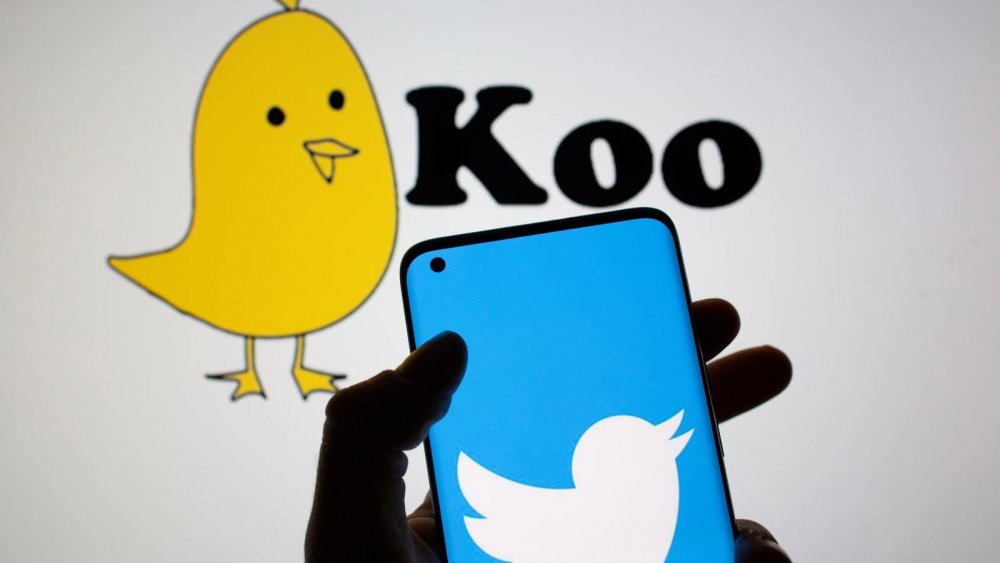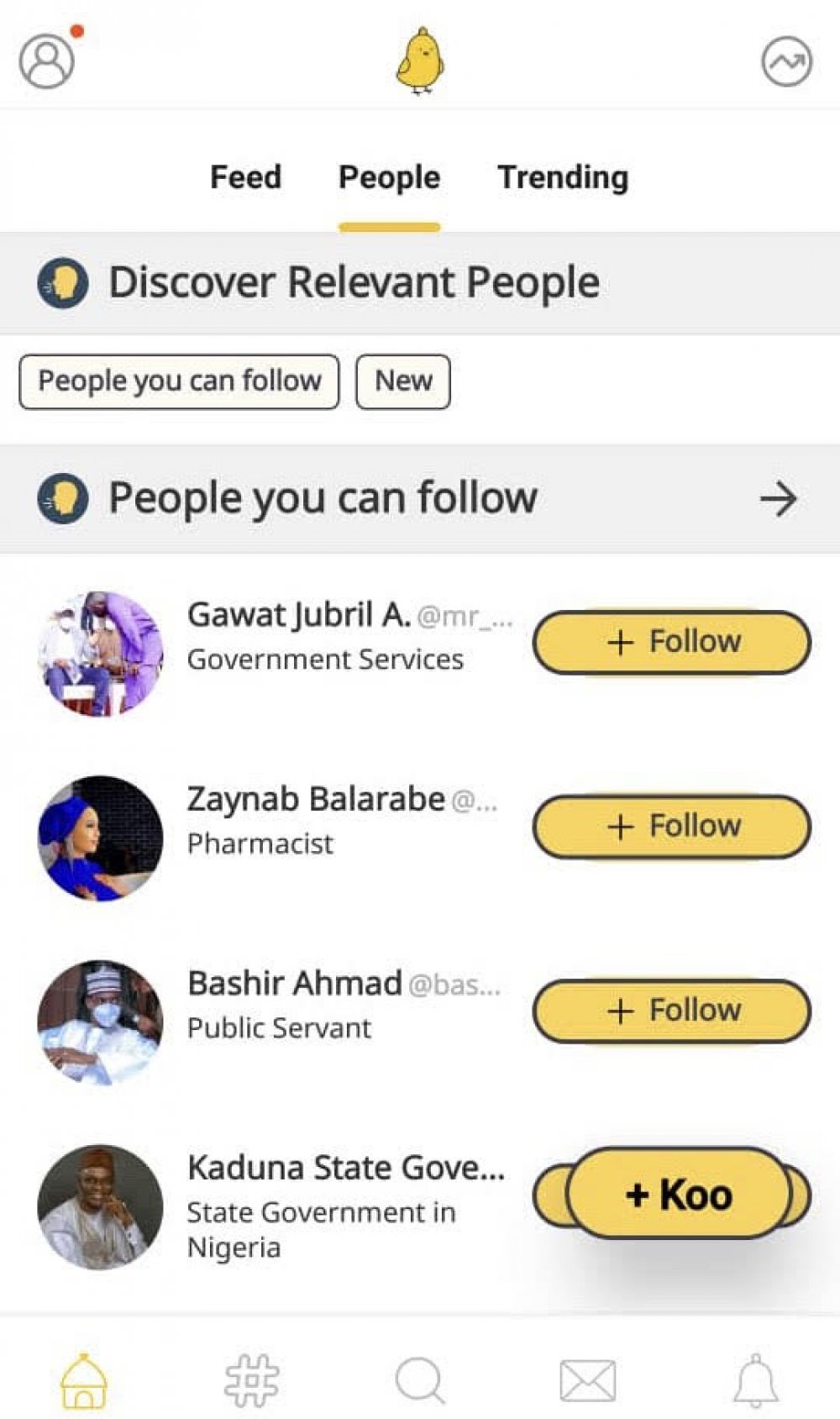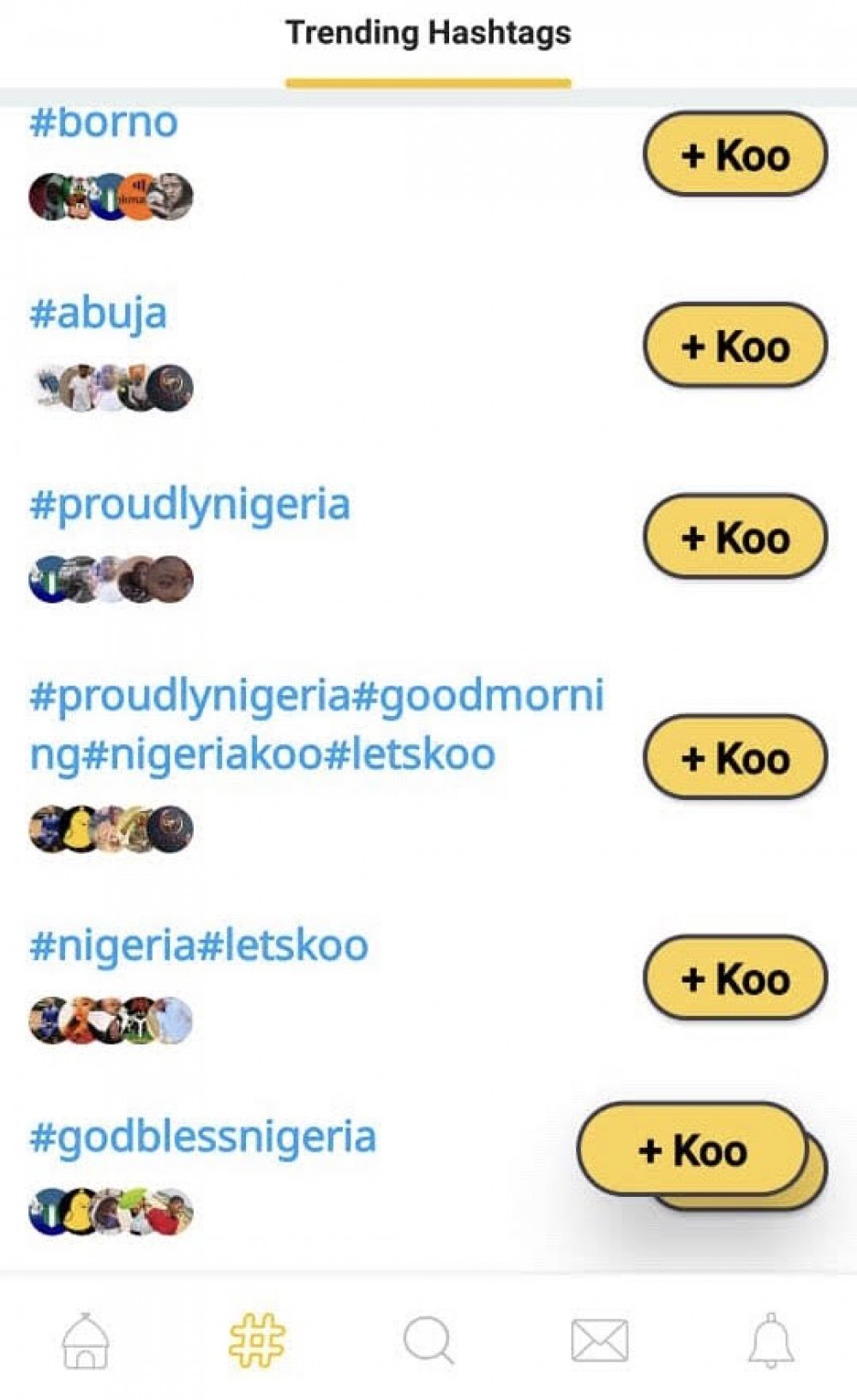Other Pages
- Opinion Poll
- About Us
- Send Your Story
- Contact Us
- Newsletter
- Privacy Policy
- Terms and Conditions

Koo, an India-based microblogging platform pierced into the Nigerian market space earlier this year following a clampdown on the use of Twitter by the Nigerian government and has since been a talking point for citizens.
The Nigerian government restricted network and internet service providers from granting users access to the American-based microblogging platform after a tweet by the president was deleted for inciting violence against a group of people. Although this hasn't totally deterred Nigerians from using the platform as a large portion of young Nigerians resorted to using Virtual Private Networks (VPNs) to continue enjoying their beloved microblogging app.
However, there has been a significant decline in the number of Twitter users in the country, as not everyone subscribes to the use of VPNs to simply use an app on their phone. This was the entry point for Koo, which had previously been successful in India for a similar reason. In India, Koo positioned itself as a government-friendly alternative to Twitter, at a time when the San Francisco-based company’s vocal support for freedom of expression was at odds with the Prime Minister Modi-led government’s attempts to curb dissent.
Koo was quick to act in Nigeria. Within days after the ban on Twitter was enforced, the app was available on Apple and Google’s app stores in Nigeria, and job ads had been posted on LinkedIn seeking local language speakers.
The app which was launched in 2020 by Aprameya Radhakrishna was initially only meant to be for the Indian market at inception, thus, it only allowed communications in local Indian languages like Hindu. However, Koo onboarded English after it realised its biggest competition, Twitter, was getting into trouble in the US.
As of May this year, Koo had an estimated 6 million users in total. Although Statista estimated that it was adding 1 million users every month, it is unclear how many Nigerians currently use the app. What we do know for sure is that Nigerians are already adopting the microblogging app, including President Muhammadu Buhari.

In contrast, Twitter currently has about 7.8 million active users in Nigeria despite the suspension. In May 2021 before the suspension, there were about 23 million active users in the country according to Stat Counter.
Apparently, Koo's growth strategy in the social media space is dominantly scavenger-like, as they only seem to build around government actions against its competition. This is a red flag for users already, as it implies that the product is built to, first of all, satisfy the government of a country before the average user.
In India, Koo's zeal in complying with government rules — in a country that has a history of cracking down on internet freedom — has established it as a partisan platform for the country’s populist right-wing. This event is already reproducing itself in Nigeria, as a large portion of its Nigerian users are adherents and even promoters of the ban on Twitter.
The implication is quite simple — Koo shows itself to be more concerned with keeping the government happy, even if it implies infringing on your civil rights.
Signing up to use the Koo app is pretty simple. All it requires are a phone number or email and a preferred password. A One-time pin (OTP) will then be sent to the phone or email for verification and confirmation of your account. Once that is done, you get access to feeds and other functions.

Koo app comes off more like a cross between Twitter and Facebook in that it has features similar to both despite its ordinary outlook. There are five menus at the top of the landing page; The Feed which shows you stories on your timeline; People, which shows you people you may find interesting; "Trending" which shows you trending posts; "New" shows you what’s new; and "Polls" which shows you polls. That being said, navigation on the app isn't complicated.
Just like Facebook, the section to make a post is the "What’s on your mind" section. A post is called a "Koo", the act of making one is called "koo-ing", and resharing one is called a "re-koo" (I know, it's funny). The app is also similar to Twitter in that there’s a limit to the number of characters for each post. But unlike Twitter’s 280 characters, Koo has a limit of 400 characters and has no provisions for threads.
As for the outlook, it's mostly a write-off. It has a rather bare-faced and boring appearance, especially when compared to Twitter, which it is trying to compete with. Pictures and videos do not come out nearly as sharp as you'd expect a serious competitor to make them.
For a social media platform, Koo is currently very boring to use as most of the conversations we have seen there are about divisive politics. This is obviously because the users are mostly flagbearers and supporters of the President Buhari’-led administration who are keen on using the platform for PR.

As a matter of fact, you can hardly come across marketing posts or campaigns - not even by small businesses. This is rather unhealthy for a social media platform as business promotion is a natural instinct for entrepreneurs and is one of the key reasons people use social media. According to the Ministry of Trade, there are more than 37 million MSMEs in Nigeria. A lot of these people use social media as advert platforms. Koo’s lack of numbers and seeming aloofness towards business promotion would be a big discouragement to young Nigerian business owners who require a social platform to generate sales.
It is also worthy of a mention that the app's trend lists are not just incredibly short but also usually dominated by just a few people expressing the same ideas. Trending topics and hashtags are generally about the same things, indicating a lack of creativity which diversity would have ensured.
In conclusion, Koo doesn't seem to have anything significant or unique to offer users except perhaps a feature that allows users to share a "koo" directly to WhatsApp. Aside from being controversial for being partisan, the app also has a history of privacy concerns. Earlier this year, ethical hacker Robert Baptiste, who goes by Elliot Alderson on Twitter, raised concerns around the security of the data collected by the app, as reported by TheHindu.com. Even if this were untrue, there is still a mountain of work to be done before it can even be seen as a worthy alternative to Twitter. Nobody likes to settle for less quality.
Tell us what you think about Koo. Are you Kooing already?
0 Comment(s)